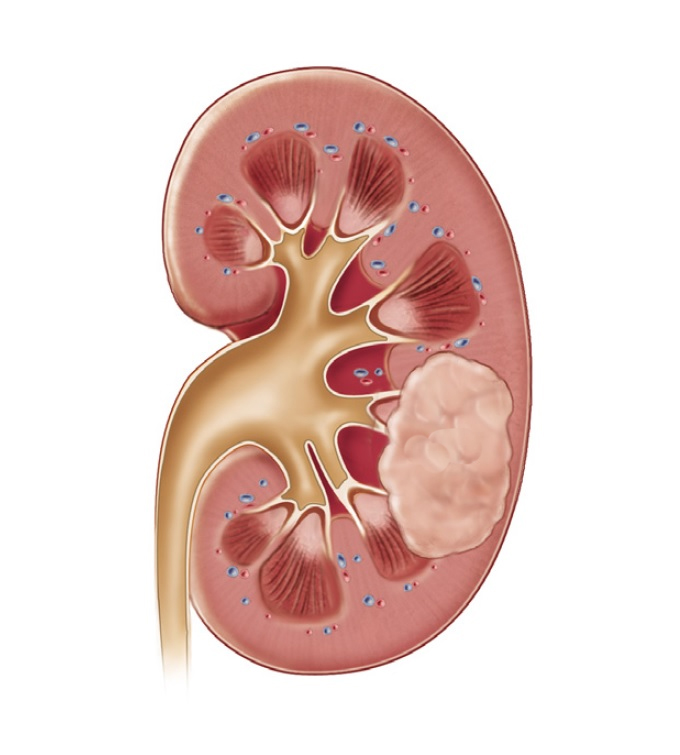Kidney Tumors in Children – Expert Diagnosis & Treatment by Dr. Prabhu Karunakaran, Pediatric Urologist in Hyderabad

Kidney tumors in children, though rare, require urgent attention and specialized treatment. The most common type, Wilms tumor, primarily affects young children, but other types, such as renal cell carcinoma, can also occur. With timely intervention and expert care, many kidney tumors can be successfully treated, ensuring the child’s health and future well-being.
Understanding Kidney Tumors in Children
A kidney tumor is an abnormal growth in the kidney that may be benign (non-cancerous) or malignant (cancerous). In children, Wilms tumor accounts for nearly 90% of kidney cancers.
Common Types of Kidney Tumors in Children
✔ Wilms Tumor – The most prevalent kidney cancer in children, typically occurring before age five.
✔ Renal Cell Carcinoma (RCC) – Less common in children but more aggressive.
✔ Congenital Mesoblastic Nephroma – A rare tumor seen in newborns and infants.
✔ Clear Cell Sarcoma of the Kidney (CCSK) – A rare but more aggressive tumor requiring advanced treatment.
Symptoms of Kidney Tumors
Kidney tumors may not always show symptoms in the early stages. However, as they progress, children may experience:
🔹 Abdominal Swelling or Lump – A firm, painless mass in the belly.
🔹 Blood in Urine (Hematuria) – Pink, red, or brown discoloration in urine.
🔹 Abdominal Pain – Persistent or intermittent pain in the stomach area.
🔹 Unexplained Fever – Recurring fevers without infection.
🔹 Loss of Appetite & Weight Loss – Unexplained drop in weight or refusal to eat.
🔹 High Blood Pressure – Elevated BP due to kidney dysfunction.
Causes & Risk Factors
While the exact causes of kidney tumors are not always clear, several factors may increase the risk:
✅ Genetic Mutations – Inherited or spontaneous mutations in kidney cells.
✅ Family History – A history of kidney tumors can elevate the risk.
✅ Syndromes Linked to Kidney Tumors – Conditions like WAGR syndrome, Beckwith-Wiedemann syndrome, and Denys-Drash syndrome.
✅ Birth Defects – Some congenital abnormalities are linked to Wilms tumor.
Early detection through routine check-ups and imaging tests can help in timely diagnosis and treatment.
Diagnosis & Advanced Evaluation
Dr. Prabhu Karunakaran, a highly skilled Pediatric Urologist in Hyderabad, ensures precise diagnosis using state-of-the-art tools, including:
Ultrasound – A non-invasive test to detect tumors and kidney abnormalities.
MRI / CT Scan – Provides detailed imaging to assess tumor size and spread.
Urine & Blood Tests – Checks kidney function and possible tumor markers.
Biopsy (if needed) – Tissue sampling to confirm the nature of the tumor.
Treatment Options for Kidney Tumors
Treatment is carefully planned based on the tumor type, stage, and the child’s overall health. A multidisciplinary approach is followed to ensure the best outcome.
Surgery (Nephrectomy)
Partial Nephrectomy – Removing only the tumor while preserving the kidney.
Radical Nephrectomy – Removing the affected kidney in cases of large or aggressive tumors.
Chemotherapy
Used before surgery to shrink tumors or after surgery to destroy remaining cancer cells.
Radiation Therapy
Applied in advanced or high-risk cases to eliminate residual tumor cells.
Targeted Therapy & Immunotherapy
Newer treatments designed to attack specific cancer cells while sparing healthy tissues.
Dr. Prabhu Karunakaran and his team ensure personalized treatment plans that prioritize both tumor removal and long-term kidney function.

Why Choose Dr. Prabhu Karunakaran for Kidney Tumor Treatment?
Renowned Pediatric Urologist in Hyderabad – Expertise in complex kidney conditions.
State-of-the-Art Treatment Facilities – Advanced surgical & medical interventions.
Comprehensive Child-Centric Care – Focus on both treatment and emotional well-being.
Multidisciplinary Approach – Collaborating with oncologists, nephrologists, and pediatric specialists.

Schedule a Consultation Today!
If your child is showing signs of a kidney tumor or you need expert guidance, consult Dr. Prabhu Karunakaran, Pediatric Urologist in Hyderabad, for specialized care and treatment options.
Frequently Asked Questions - Kidney Tumors in Children
What are kidney tumors in children?
Kidney tumors are abnormal growths in a child’s kidney. The most common type is Wilms tumor (nephroblastoma), typically seen in children between 1 and 8 years of age. Other types include clear cell sarcoma, rhabdoid tumor, congenital mesoblastic nephroma, and renal cell carcinoma.
What symptoms should parents look for?
Symptoms may not appear in early stages. As the tumor grows, children may show:
A lump or swelling in the abdomen
Abdominal pain
Blood in the urine
Fever or fatigue
Poor appetite or vomiting
High blood pressure
Weight loss or night sweats
How are kidney tumors diagnosed?
Diagnosis involves:
A thorough physical exam and medical history
Blood and urine tests
Imaging tests like ultrasound, CT scan, or MRI
In some cases, a biopsy may be recommended if the diagnosis is uncertain
What are the treatment options?
Treatment depends on the type and stage of the tumor and may include:
Surgery: Removing the affected kidney (nephrectomy) or part of it
Chemotherapy: Used before or after surgery to destroy cancer cells
Radiation therapy: May be used in advanced or aggressive tumors
Follow-up care: Regular monitoring to check for recurrence or complications
What factors influence treatment decisions?
Doctors consider several factors, including:
Tumor type and stage
Whether one or both kidneys are affected
Child’s age and overall health
Histology (appearance of tumor cells under a microscope)
Presence of any associated genetic conditions
What is the prognosis for children with kidney tumors?
The prognosis is generally very good, especially for Wilms tumor. With timely treatment, the survival rate is over 90%. Prognosis may vary for rarer tumor types or advanced stages.
Will my child need follow-up care?
Yes. Long-term follow-up is essential to:
Monitor kidney function
Detect recurrence early
Manage side effects of treatment like growth problems or secondary cancers
Support overall physical and emotional health
Why is it important to choose a pediatric urology specialist?
A pediatric urologist brings:
Expertise in treating childhood kidney conditions
Access to child-friendly surgical techniques
Experience with preserving kidney function
A supportive, multidisciplinary care team focused on young patients


